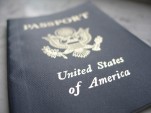Multiple Online Identities?
In our day-to-day lives it’s illegal to have multiple identities, so why should we be allowed them online?
The Internet is becoming a bigger part of our lives every day, the separation between online and offline life is becoming ever more blurred. Social media has been so widely adopted that it is now engrained into society. The days of phoning up friends to share news have been replaced by posting a tweet.
This should make us ask the question as to whether the rules of society should apply online.
Specifically, should we be made to use our legal name for all our interactions on the web?
At first glance there would appear to be many benefits to this:
- Less malicious behaviour such as cyber bullying (goodbye keyboard warriors!)
- Reduced criminal behaviour facilitated online (e.g. piracy, cybercrime, child grooming etc.)
- Improved credibility from using real names
But after longer thought the problems caused by this become evident:
- Freedom of speech weakened by the loss of anonymity
- Reputation problems arise
- People would be disincentivized to discuss awkward topics (e.g. politics and personal issues) in order to preserve a perfect online identity
Most importantly would be the loss of anonymity. People would be forever attempting to maintain their good reputation, as every online action would be carried out under their name. None of us are perfect and we will do the occasional thing we aren’t proud of. This is fine offline. However when this happens online, everything is documented, the data is archived, forever available for everyone to view. As mentioned here this is likely to negatively impact job prospects.
Employers already use Google as a screening tool, imagine how much more prolific the screening would be if everyone had a single online identity.
This problem is so big that a whole industry has been developed to exploit it. Sites like reputation.com will offer to clean your online identity (for the small sum of $1,000 a year).
It is quite a scary thought, and one I think many, including myself, would like to avoid. Why else is the Snapchat app so popular? We don’t want everything we do published online, to be forever archived under our names.
As The Guardian outlines, South Korea and China allow residents to have multiple identities online but force them to associate each account with a unique National ID number. Allowing the government to keep track of the true identities of each account, whilst withholding them from the public. This system is actually quite similar to eBay where each user can give themselves their own persona, but their true details are stored on PayPal, incase there are any issues.
This policy preserves the power of anonymity, whilst not allowing users to feel above the law.

photo credit: Alyssa L. Miller via photopin cc
References
S. Henn (2013) “Fixing Your Online Reputation: There’s An Industry For That” – NPR
J. Zittrain (2010) “Reputation Bankruptcy” – Future of the Internet
A. Krotoski (2012) “Online Identity: is authenticity or anonymity more important?” – The Guardian
J. Jarvis, C. Poole (2013) “Online Security Conundrum: Identity vs. Anonymity” – Google Ideas, Youtube
R. Pringle, J. Hirsh, P. Barss, A. Marwick, S. Turkle, L. White (2012) “Identity: Are you the Same Person Online & Offline” – rdigitallife, Youtube
D. Greenwood, W. Mitchell (2008) “Your Online Identity: On The Line – 4: Anonymity” – Dazza Greenwood, Youtube


